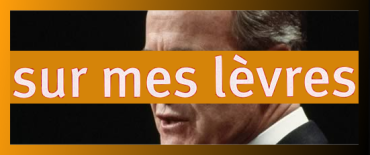
by Gita M. Smith
“In case you get separated,” he said, “everyone can find the way alone.”
Alone. That scared me more than snakes or the whipping post.
We walked at night, blending into the shadows when we passed plantations where white men watched for runaways.
We took turns sleeping by day, boiling turnip greens and frying corn on small cook-fires built with dead wood (green wood makes smoke).
A spell of clouds rolled in and stayed a week, so we couldn’t travel by starlight. My daddy scouted to find shelter for us – 17 men, women and children – from the rains. The longer we stayed in one place, he said, the higher the danger of being found. People together make more noise than they know. More than all the animals in the same forest.
“How will we know when we have reached Ohio?” I asked. I was afraid we would miss some sign and walk like this forever.
My daddy took my hand. “If you have faith, you will see the signs and signals.”
And he was right.
The day we crossed the line I swear the air was sweeter and the dawn was purest gold.

by Paul de Denus
Not a gift I was expecting, he thought.
Anderson moved his boots slowly in the heavy Wyoming mud, courtesy of last night’s downpour. He glanced to where Mr. Lee lay, arms and legs sprawled every which way, between overturned feed barrels, his body ripped up and down in dark red tufts. The Barrett boys – lawless, loudmouthed louts – were shouting, laughing over the ‘chinaman’s’ demise. Guns waving, they weaved in place, boots firming in the congealing quagmire.
Sheriff Anderson thought of them as candles; candles stuck in dark creamy icing, shaped tallow wilting in the slow burn of the morning sun. A halo’s glow danced and wavered around their heads. He felt the sun on his back, felt the good Lord’s hand resting on his shoulder. If steady enough, he just might be able to blow these out.
The two on the left were absently loading their guns, oblivious to his approach. Dall, the youngest, twitched like a burnt bug as he stared into the white glare. Yes, he’d take the one on the left first, then the middle one, then the twitchy one. Aim at the halo, he thought. Blow out the candles. Pray he got nothing in return.

by Sandra Davies
Reactive.
Nature or Nurture.
And just last night a conversation on inheritance of an unwanted prudery which still dictates, at least, a first impulse even though I wish it didn’t.
Nature overwhelmed by nurture. Maternal nurture since after she died my father said she ever was old-fashioned. And I wonder why (but also know) he took no steps to intervene. Nor change the situation for himself until at the age of sixty-four he joined Dateline and tried to live the life he thought he had missed out on.
Yet she was allowed to be the guiding light. And that I am so rarely proactive meant I simply followed. Simply allowed a variety of catalysts to shape my path. (A path through a life that honesty compels me to say has been enjoyable. Good to me and filled with love and achievement more than commensurate with what I have put in.)
And so I have to ask myself what kind of guiding light have I allowed to shine?
To a type of rational person I am irrational. To the gregarious I am too solitary. To the non-creative I am too introverted. To the family-minded far too selfish.
And I doubtless have unwittingly misled my children at least as much as I could claim to have been deceived. Though ‘deceived’ is an over-harsh description of what must be too much an impulse towards regret when I glance retrospectively at my life.

by Bill Lapham
Ours is not an intelligent design, the spatial relationship of our eyes to our brains is fucked up. I need eyeballs at my fingertips, not at the center of my thinking organ, the piece of meat that sustains my life. I need to see around stuff like corners and trees and rocks and things.
***
Polaris is a stable platform. A beam of light that never wobbles from its position directly above Earth’s North Pole. Polaris has guided sailors across oceans for thousands of years. When the sun’s light is blocked by the earth and we are awash in its shadow, it is reassuring to look up on clear night, find Ursa Major, the Big Dipper, and follow the curvature of its handle to Polaris. Keep it on your right shoulder and head west; your left and go east; keep it behind you for southbound and down; and in front of you to head into Neptune’s wrath, the North Wind.
North: clean, crisp, and crackling cold. Walk north, but walk fast. Keep the warm blood flowing. Exhaust your lungs on frozen fingertips, and pray for renewed light and heat tomorrow.

by Michael D. Brown
She breathed deeply twice as if preparing to say or drink more, but did neither and exited promptly, unaware of her more sober mentor taking pleasure in the rhythmic bobbing of her ample buttocks. He had always been an ass-man.

















